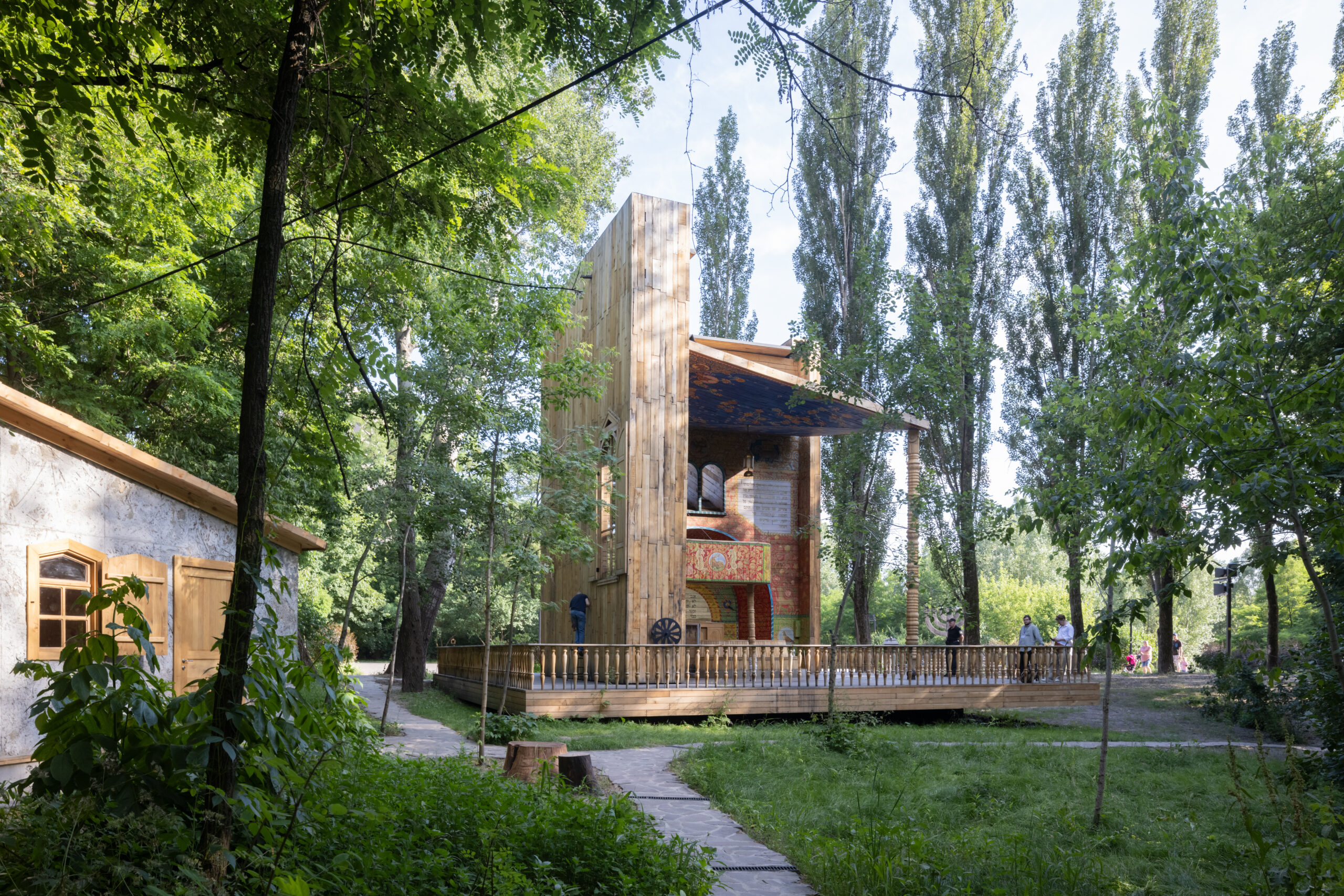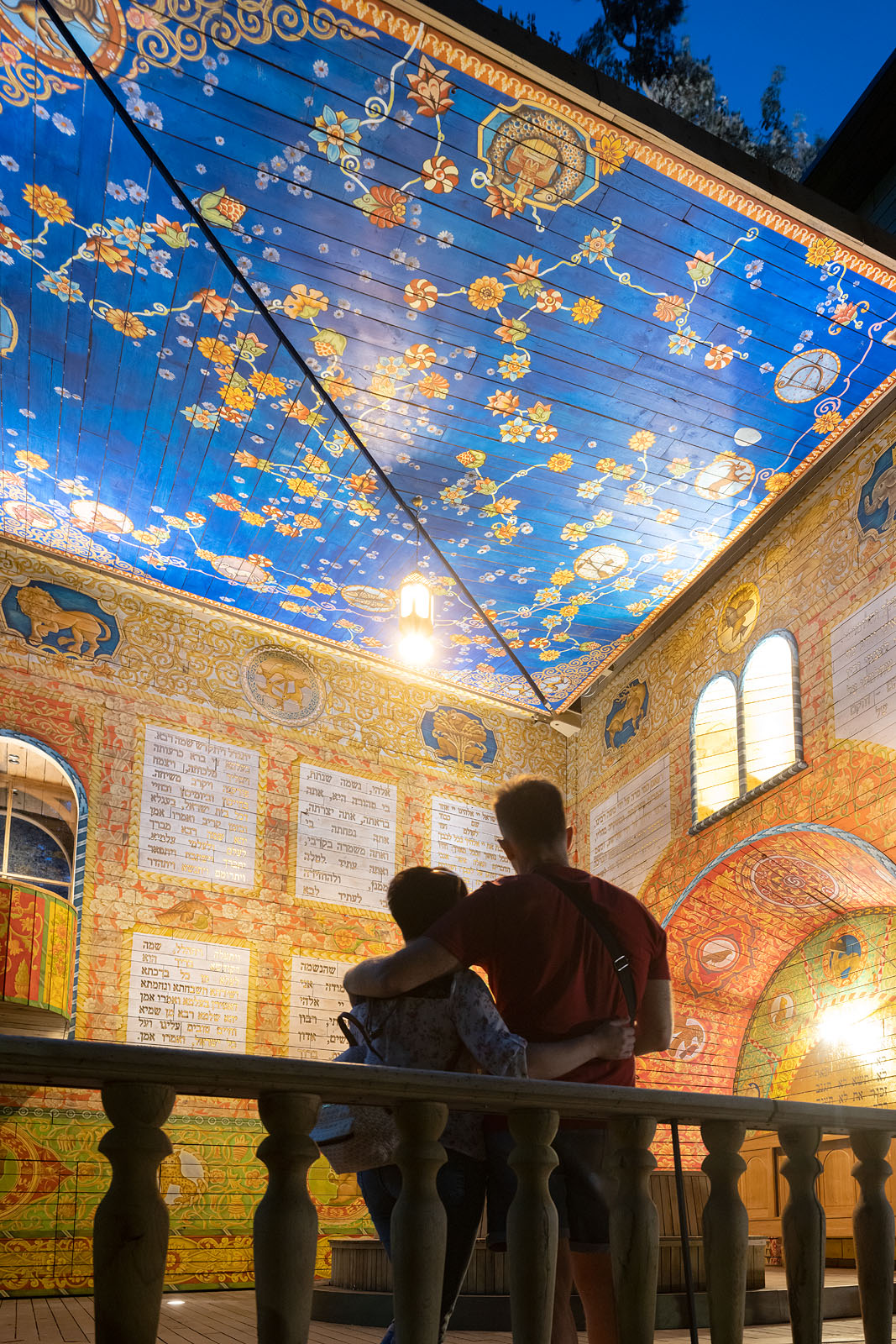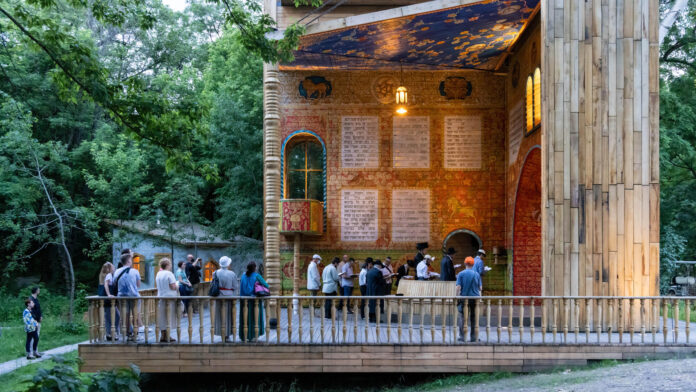A unique, outdoor synagogue has been established at the site of one of the largest mass shootings of the Holocaust, following a suggestion made by Robert Jan van Pelt, a UW School of Architecture professor.

This prayer space, which is open to people of all faiths, is located in Babyn Yar, a ravine on the outskirts of Kyiv, Ukraine, where more than 33,000 Jews were executed by Nazi forces between Sept. 29 and 30, 1941. In the following years, the death toll in the ravine rose to 150,000. It has since been converted into a park featuring a few monuments that convey the horrifying history of Babyn Yar.
Van Pelt is a member of the Babyn Yar Holocaust Memorial Foundation’s architectural board, a committee responsible for planning the future of the site. In October 2020, he conducted a series of lectures for his fellow board members to further their understanding of Jewish prayer spaces. During an informal discussion in one of these seminars, he proposed the creation of a synagogue to commemorate the victims of the massacre.
Ilya Khrzhanovsky, the artistic director of the foundation, immediately approved the idea. “Before we knew it, it was literally going from a suggestion that I just made to, by the end of the meeting, …‘Let’s do it, why not?’. I was surprised [as] I had not really meant for this to be a practical proposal”, Van Pelt said.
Designed by award-winning architect Manuel Herz, the synagogue resembles a pop-up book that unfolds into a three-dimensional space. The whimsical design of the building creates a juxtaposition with the sombre memorials in the park. Van Pelt described the intention behind the playful architectural style of the space, stating, “When you’re dealing with… a tragedy [of this size], there is always a tendency to go for something that’s very heavy, that’s very pessimistic and we actually wanted to do something that was optimistic, that talks about resilience, that talks about the life that continues… and the promise that the massacre [won’t] be the last [event that occurs] on this site”.
The synagogue was built with 100-year old Ukrainian oak wood, paying homage to 17th- and 18th-century wooden synagogues that were destroyed during events like the Holocaust. The symbols and iconography painted on the ceiling are also inspired by these historic Jewish spaces.

Since its inauguration, the synagogue has received positive reactions from Ukrainians as well as from people around the world. It has also significantly improved the Jewish-Christian relations in the country, according to the chief rabbi of Ukraine.































